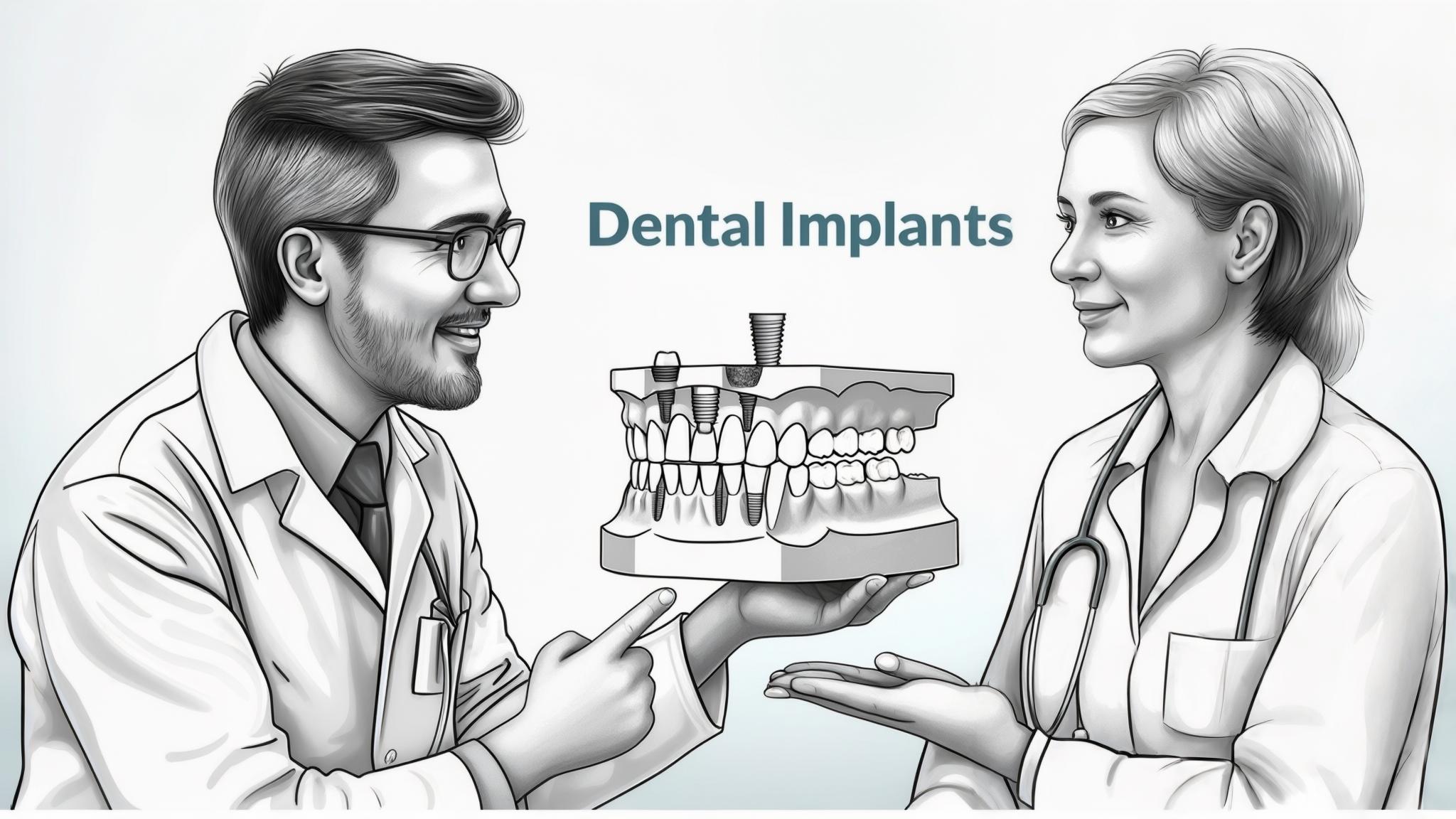Understanding Dental Implants
Dental implants are a remarkable innovation in restorative dentistry, offering a durable and natural-looking solution for replacing missing teeth. They consist of a titanium post surgically placed into the jawbone, which acts as a root for a replacement tooth. Dental implants are crucial because they help maintain jawbone structure, improve oral function, and enhance aesthetics. However, like any medical procedure, there can be complications. This article focuses on understanding what happens if a dental implant fails, the signs to watch for, and how to address potential issues.
Understanding Dental Implant Failure
Dental implant failure occurs when the implant does not properly integrate with the jawbone or becomes unstable after initially successful integration. While dental implants boast a high success rate of around 95%, failures can still occur. Common reasons include infection, insufficient bone density, and improper placement. Recognizing these factors can help in preventing failures and ensuring long-term success.
Signs of Dental Implant Failure
Pain and Discomfort
Experiencing some discomfort after implant surgery is normal, but persistent or severe pain might indicate a problem. Normal post-operative pain should decrease over time, whereas pain related to failure may persist or worsen.
Swelling and Inflammation
Some swelling is expected after surgery, but excessive or prolonged swelling could signal an issue. Localized swelling might indicate an infection, while systemic symptoms like fever could suggest a more serious problem.
Mobility of the Implant
An implant should feel stable and secure. If it feels loose or wobbly, this could be a sign of failure, as stability is crucial for the implant's success.
Gum Recession and Bone Loss
Receding gums around the implant or noticeable bone loss can compromise the implant's stability. These signs should prompt a visit to your dentist for evaluation.
Diagnosing Implant Failure
Clinical Examination
Regular dental check-ups are vital for early detection of implant issues. Dentists look for signs of infection, mobility, and gum health during these examinations.
Imaging Techniques
X-rays and CT scans are essential tools in diagnosing implant complications. They provide detailed images of bone density and implant positioning, helping dentists identify problems that aren't visible to the naked eye.
Treatment Options for Failed Dental Implants
Non-Surgical Treatments
Infections can sometimes be managed with antibiotics, and gum disease might be treated with professional cleanings and improved oral hygiene.
Surgical Interventions
If non-surgical methods fail, removing the implant might be necessary. In some cases, bone grafting procedures can restore bone density, allowing for a new implant to be placed.
Follow-up Care and Monitoring
After treatment, follow-up visits are crucial to monitor healing and ensure the success of any new implants. Regular maintenance is key to preventing future complications.
Preventing Dental Implant Failure
Importance of Proper Oral Hygiene
Daily brushing and flossing, along with regular professional cleanings, are essential in maintaining implant health.
Choosing the Right Dental Professional
Selecting an experienced and qualified dentist can significantly impact the success of your implant. Open communication with your dentist helps address concerns early.
Lifestyle Factors
Smoking and excessive alcohol consumption can negatively affect implant success. A balanced diet supports overall oral health and implant longevity.
Conclusion
Recognizing the signs of dental implant failure and seeking timely professional help can make a significant difference. With proper management, dental implants are a highly successful solution for missing teeth.
References
- Smith, J. (2020). "Dental Implant Success Rates: A Comprehensive Review." Journal of Dental Research.
- Johnson, L. (2019). "Understanding Bone Loss in Dental Implantology." Oral Health Foundation.
Call to Action
Schedule regular dental check-ups to ensure your dental implants remain healthy and functional. Share your experiences or questions about dental implants to help others on their journey.

